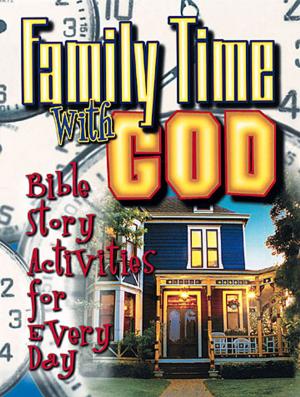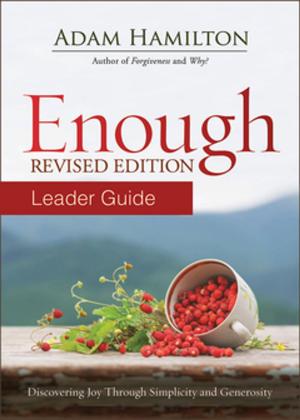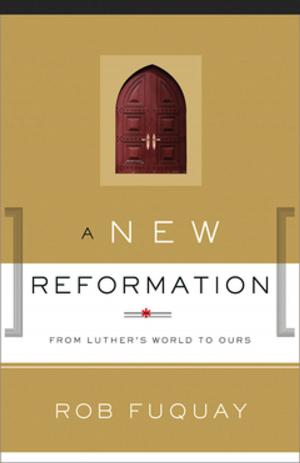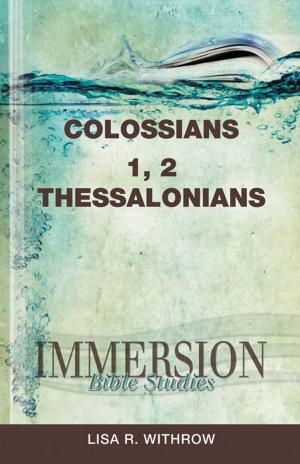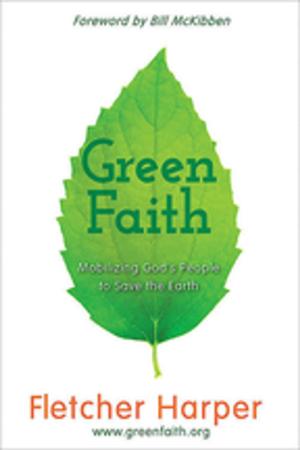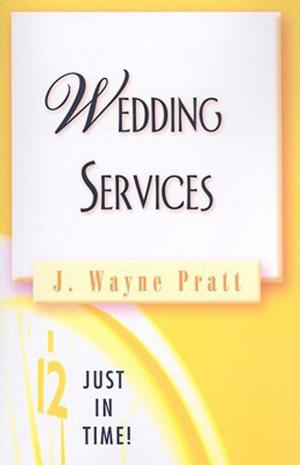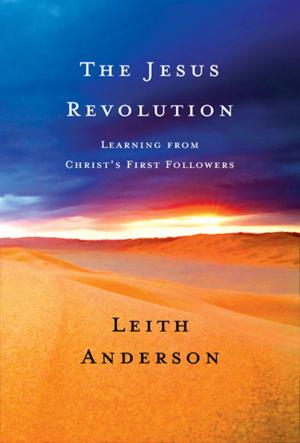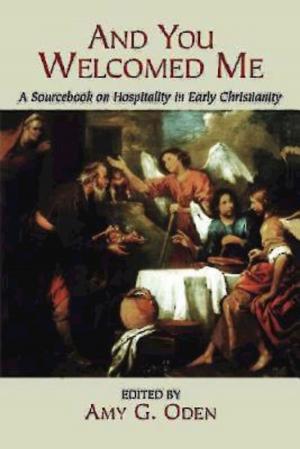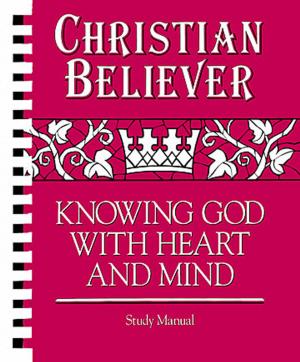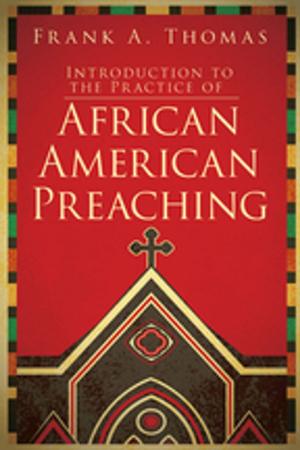Covenant Bible Study: Trusting Participant Guide
Nonfiction, Religion & Spirituality, Inspiration & Meditation, Discipleship, Christianity, Education, Bible & Bible Studies| Author: | Abingdon Press | ISBN: | 9781501839290 |
| Publisher: | Abingdon Press | Publication: | August 16, 2016 |
| Imprint: | Abingdon Press | Language: | English |
| Author: | Abingdon Press |
| ISBN: | 9781501839290 |
| Publisher: | Abingdon Press |
| Publication: | August 16, 2016 |
| Imprint: | Abingdon Press |
| Language: | English |
This Covenant experience will guide participants in a comprehensive, in-depth study of the Bible over twenty-four weeks. Unlike the learning participants may have experienced in other groups, this in-depth study of the whole Bible emphasizes the biblical concept of covenant as a unifying pattern through all the books in the Old and New Testaments. It underscores the unique relationship that God chooses to have with us as God’s people. This relationship is grounded in the faithfulness of God’s love and on our ongoing commitment to stay in love with God while we share signs of that love with others.
Each episode connects to an aspect of this covenant relationship, which is summarized in the heading of each participant guide.
LIFE, AS WE ALL KNOW TOO WELL, IS IMPERFECT. Difficulties are inevitable. That’s why the final eight-weeks, Trusting the Covenant, looks at the crises that sometimes call covenant life into question, and how we are restored to trust in God when troubling things happen.
This module discusses the loss of hope, and how it is restored by faithfulness in the midst of suffering. From the story of Job, to the Hebrew exile, to the apocalyptic visions in Daniel and Revelation, we learn how faithful love is at work in everything—to restore hope, freedom, and wholeness to our lives.
Each participant in the group needs the Participant Guides and a Bible. The CEB Study Bible is preferred.
The Trusting Participant Guide is 8 weeks long, and has a lay flat binding making it easy to take notes in the generous space provided on each page.
The Trusting Participant Guide contains the following episodes:
Episode 17: John; 1, 2, and 3 John
For John the God we meet in Jesus is the one who keeps coming into the world, going out of the way to be in relationship with us. Jesus meets his followers in whatever ways they need with new and abundant life. Jesus draws people back into community and promises the Holy Spirit to those who follow him.
Episode 18: Psalms
Psalms are songs, poems, and prayers to and about God. There is diversity of authorship across the Psalms. Three major types of psalms are laments, thanksgiving psalms, and psalms of praise. The psalms are user-friendly and give voice to our conflicts, confessions, and cries for God’s rescuing help. The Psalms teach us how to pray and that God’s primary character trait is faithful love.
Episode 19: Job
Like the Bible as a whole, the book of Job offers a number of voices or perspectives. Job stages difficult human questions such as, “Why do human beings worship God?” or “Why do people suffer?” and even, “what is God’s role in suffering?” The book of Job also asks, “Does good behavior bring blessing?” and “Does bad behavior bring curse and suffering?”
Episode 20: Jeremiah, Lamentations, Ezekiel
Jeremiah, Lamentations, and Ezekiel offer three different perspectives on the same catastrophic event: the Babylonian destruction of Jerusalem in 587 CE and the exile of God’s people to a foreign land.
These books affirm the power of lingering with sorrow so we can hear the voices of those who are suffering. Any hope found in these books remains in the promise that God will bring life to dry bones or write a new covenant on hearts in a blessed but distant future.
Episode 21: Isaiah 40-66
The story of how Israel gained and lost the land becomes a treasure that they carry with them into exile. The poetry in these passages is written to inspire and invite God’s homesick people in Babylon to become pioneers and return home to Israel. The God of Israel is no regional deity but is the one and only God of all, everywhere and all the time. Through fire and water, chaos and captivity, the people called by God and redeemed by God also belong to God.
Episode 22: 1 and 2 Chronicles, Ezra, Nehemiah
The people returning home from exile in successive waves must rebuild their whole way of life. Ezra and Nehemiah look at the practical need for city walls and a center for worship. The Chronicler stresses the importance of “re-remembering” our story in the right way in order to understand who we are in this new life. The practices that sustained the people in exile will define a people who weren’t old enough to remember life before exile.
Episode 23: Apocalyptic—Daniel
Apocalyptic literature is not primarily about future events. It looks at traumatic events in the present and finds a divine plan at work. By using vivid symbols and imagery, the court tales and visions of
Daniel stress that God is ultimately controls human events. The identity of faithful people is defined by living faithfully according to the covenant teachings in a context where those values are under threat. Faith has its price, but our hope in God empowers us to never give up.
Episode 24: Revelation
Revelation is a book written for poor people struggling under great duress. It uses vivid, terrifying images to express God’s unswerving faithfulness and the faithfulness of those who stand firm in the face of dehumanizing forces in the world. The symbol of hope in Revelation is the new creation and loyal love between God and the faithful. This symbol provides comfort, courage, and assurance that the one who made a covenant with all things at the very beginning will be with us at the end of all things.
More Questions? Visit http://covenantbiblestudy.com/ for more information.
This Covenant experience will guide participants in a comprehensive, in-depth study of the Bible over twenty-four weeks. Unlike the learning participants may have experienced in other groups, this in-depth study of the whole Bible emphasizes the biblical concept of covenant as a unifying pattern through all the books in the Old and New Testaments. It underscores the unique relationship that God chooses to have with us as God’s people. This relationship is grounded in the faithfulness of God’s love and on our ongoing commitment to stay in love with God while we share signs of that love with others.
Each episode connects to an aspect of this covenant relationship, which is summarized in the heading of each participant guide.
LIFE, AS WE ALL KNOW TOO WELL, IS IMPERFECT. Difficulties are inevitable. That’s why the final eight-weeks, Trusting the Covenant, looks at the crises that sometimes call covenant life into question, and how we are restored to trust in God when troubling things happen.
This module discusses the loss of hope, and how it is restored by faithfulness in the midst of suffering. From the story of Job, to the Hebrew exile, to the apocalyptic visions in Daniel and Revelation, we learn how faithful love is at work in everything—to restore hope, freedom, and wholeness to our lives.
Each participant in the group needs the Participant Guides and a Bible. The CEB Study Bible is preferred.
The Trusting Participant Guide is 8 weeks long, and has a lay flat binding making it easy to take notes in the generous space provided on each page.
The Trusting Participant Guide contains the following episodes:
Episode 17: John; 1, 2, and 3 John
For John the God we meet in Jesus is the one who keeps coming into the world, going out of the way to be in relationship with us. Jesus meets his followers in whatever ways they need with new and abundant life. Jesus draws people back into community and promises the Holy Spirit to those who follow him.
Episode 18: Psalms
Psalms are songs, poems, and prayers to and about God. There is diversity of authorship across the Psalms. Three major types of psalms are laments, thanksgiving psalms, and psalms of praise. The psalms are user-friendly and give voice to our conflicts, confessions, and cries for God’s rescuing help. The Psalms teach us how to pray and that God’s primary character trait is faithful love.
Episode 19: Job
Like the Bible as a whole, the book of Job offers a number of voices or perspectives. Job stages difficult human questions such as, “Why do human beings worship God?” or “Why do people suffer?” and even, “what is God’s role in suffering?” The book of Job also asks, “Does good behavior bring blessing?” and “Does bad behavior bring curse and suffering?”
Episode 20: Jeremiah, Lamentations, Ezekiel
Jeremiah, Lamentations, and Ezekiel offer three different perspectives on the same catastrophic event: the Babylonian destruction of Jerusalem in 587 CE and the exile of God’s people to a foreign land.
These books affirm the power of lingering with sorrow so we can hear the voices of those who are suffering. Any hope found in these books remains in the promise that God will bring life to dry bones or write a new covenant on hearts in a blessed but distant future.
Episode 21: Isaiah 40-66
The story of how Israel gained and lost the land becomes a treasure that they carry with them into exile. The poetry in these passages is written to inspire and invite God’s homesick people in Babylon to become pioneers and return home to Israel. The God of Israel is no regional deity but is the one and only God of all, everywhere and all the time. Through fire and water, chaos and captivity, the people called by God and redeemed by God also belong to God.
Episode 22: 1 and 2 Chronicles, Ezra, Nehemiah
The people returning home from exile in successive waves must rebuild their whole way of life. Ezra and Nehemiah look at the practical need for city walls and a center for worship. The Chronicler stresses the importance of “re-remembering” our story in the right way in order to understand who we are in this new life. The practices that sustained the people in exile will define a people who weren’t old enough to remember life before exile.
Episode 23: Apocalyptic—Daniel
Apocalyptic literature is not primarily about future events. It looks at traumatic events in the present and finds a divine plan at work. By using vivid symbols and imagery, the court tales and visions of
Daniel stress that God is ultimately controls human events. The identity of faithful people is defined by living faithfully according to the covenant teachings in a context where those values are under threat. Faith has its price, but our hope in God empowers us to never give up.
Episode 24: Revelation
Revelation is a book written for poor people struggling under great duress. It uses vivid, terrifying images to express God’s unswerving faithfulness and the faithfulness of those who stand firm in the face of dehumanizing forces in the world. The symbol of hope in Revelation is the new creation and loyal love between God and the faithful. This symbol provides comfort, courage, and assurance that the one who made a covenant with all things at the very beginning will be with us at the end of all things.
More Questions? Visit http://covenantbiblestudy.com/ for more information.


